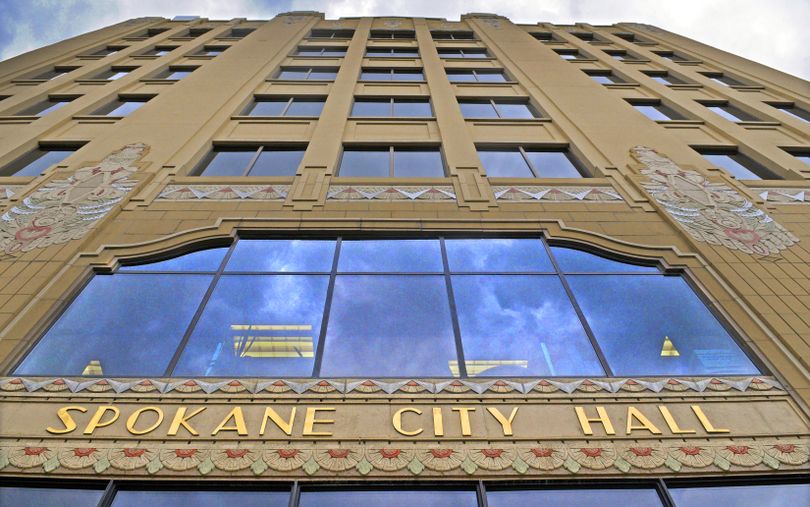Spokane City Council approves federal legislative agenda

Last night's Spokane City Council meeting was ruled by heated talk and dire warnings of a recently passed city law that says police will not ask people about their immigration status.
But the council also did some business, notably approving a federal legislative agenda. There's nothing too shocking here. The city wants grant funding to continue its effort to separate stormwater and wastewater and stop sewage from dumping into the Spokane River on rainy days. This effort has universal support among elected officials at City Hall, but the $300 million project - called the Integrated Clean Water Plan - is an ambitious project with a hefty price tag. Will the feds help out?
The council also wants support for the proposed Central City Line, which is part of the Spokane Transit Authority's Moving Forward Plan. Last month, the STA board sent the issues to voters, who will consider funding the plan on April's ballot. The council is also asking the federal government to amend the Civil Rights Act of 1964 to achieve gender pay equity and to require sellers to pay local sales tax even if the sales are done remotely.
Lastly, the council wants $8.8 million to build a bicycle and pedestrian bridge over the rails separating the University District from East Sprague Avenue.
Read the full agenda below.
Integrated Clean Water Plan: $17 million included in federal grants or similar funding for Phase 2 of the Cochran Basin stormwater management project. This would match a Washington state capital funding request for $17 million for Phase 1 of this project. The Cochran Basin project is part of the City’s Integrated Clean Water Plan, which details $310 million in projects to improve the health of the Spokane River. Cochran Basin is the largest stormwater basin in the City, delivering about 300 to 600 million gallons of stormwater to the River annually. The overall project will divert and treat 90 percent of that flow and include neighborhood amenities, including a river access point for rafts and kayaks.
Marketplace Fairness Act: Authorizes each member state under the Streamlined Sales and Use Tax Agreement to require all sellers not qualifying for a small-seller exception to collect and remit sales and use taxes with respect to remote sales under provisions of the Agreement, but only if such Agreement includes minimum simplification requirements relating to the administration of the tax, audits, and streamlined filing. Defines "remote sale" as a sale of goods or services into a state in which the seller would not legally be required to pay, collect, or remit state or local sales and use taxes unless provided by this Act.
Central City Line: Support for the Central City Line via the continued funding of the FTA Small Starts Program. The Central City Line is a modern electric trolley (MET) designed to operate between Browne’s Addition and Spokane Community College via downtown, Gonzaga University and the University District. The Central City line will stimulate economic development and improve mobility and access to education.
Gender Pay Equity: Amend the Civil Rights Act of 1964 to declare that an unlawful employment practice occurs when: (1) a discriminatory compensation decision or other practice is adopted; (2) an individual becomes subject to the decision or practice; or (3) an individual is affected by application of the decision or practice, including each time wages, benefits, or other compensation is paid. Allow liability to accrue, and allow an aggrieved person to obtain relief, including recovery of backpay, for up to two years preceding the filing of the charge, where the unlawful employment practices that have occurred during the charge filing period are similar or related to practices that occurred outside the time for filing a charge.
University District Bike-Pedestrian Bridge: $8.8 million to develop a non-motorized connection over the BNSF Railroad between the South University District/East Sprague Avenue area and the rapidly developing Riverpoint and Gonzaga University campuses. The bridge itself intends to provide a critical link between these areas, and its architectural design intends to provide a sense of place by setting a new tone for high quality development that will fuel revitalization and growth.
